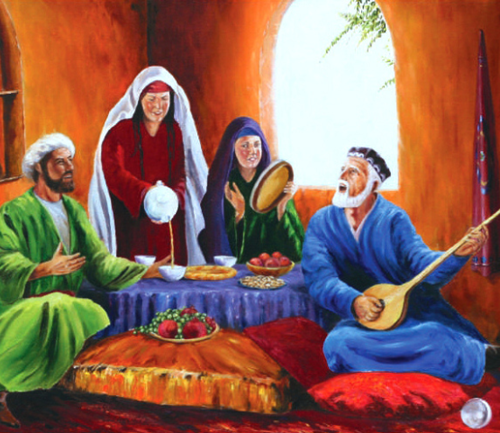
Venue:
Dushanbe, Tajikistan
Date
19 September 2025
Time
Friday, 19 September 2025 | 9:00 AM (Tajikistan Time) | Online & In-Person
Family is considered one of the key links to human development. It is an essential institution where a person is formed and developed socially, culturally, and spiritually. It also plays a vital role in developing music aptitude, abilities, and interest in music and the creation of music.
It is in the family where the first sound of music reaches our ears through the mother’s sweet and delicate voice. With mothers’ lullabies, we enter the world of music, and from that time, its role in our daily life begins. This is the first step when we communicate with the world around us and understand it. It is considered the central pillar of society and the source of anyone's spiritual and cultural development. Many family gatherings and festivities, such as weddings, funerals, the birth of a child, a boy’s circumcision, and many other family rituals, are accompanied by music. Through the production and consuming music in the family, the social roles of people are shaped, and music and musical performances become the defining features of social life, fostering feelings of togetherness and mutual belonging. Also, arts practitioners have traditionally acquired knowledge not through formal schooling but through the traditional pedagogy of ustod -shagird. (master-apprentice).
The tradition of family ensembles in Central Asia plays a vital role in the region's cultural heritage, showcasing the rich musical and artistic practices passed down through generations. This conference aims to explore the significance of family ensembles in fostering cultural identity, social cohesion, and artistic innovation within Central Asian communities.
By bringing social sciences and humanities scholars together to explore the role of family music-making and its contribution to the development of traditional music in Tajikistan. The conference also discusses the connection between family, music, and culture. It will explore what could be learned from the relationship of music and family, both as cultural configurations, discourses, practices, and politics. For example, what role do music and family play in making cultural heritage and identities, community engagement, and state-sponsored programs? It also aims to disclose the concept of a family music ensemble as an important social and cultural phenomenon in Central Asia, particularly in Tajikistan. Music and family are strongly connected with each person's daily life, help to understand the past, present and future life, and express feelings, fostering individual and communal identity.
The UCA’s Cultural Heritage and Humanities Unit (CHHU) of the Graduate School of Development is hosting a conference in Dushanbe in honour of Tajikistan’s Independence Day, dedicated to celebrating the enduring strength, unity, and well-being of the family as the foundation of the nation.
This international conference aims to bring together scholars of the social sciences and humanities, musicologists, and cultural historians to examine the role of family-based musical practices in preserving and developing traditional music and cultural heritage in Tajikistan. Discussions will explore the interrelationship between family, music, and culture, with a particular focus on their contributions to the formation of national, social, and political identities. The conference will also address the concept of the “family ensemble” as a significant social and cultural phenomenon, analysing it within the broader context of Central Asia.
Music and the family are inextricably intertwined in everyday life, serving as key mediums for understanding the past, engaging with the present, and envisioning the future. They play a formative role in shaping individual identities and strengthening community bonds.
Conference Programme
09:00-09:30 Opening Remarks
09:30-11:00 Session 1: Intergenerational Transmission of Musical Heritage
11:15-12:45 Session 2: Family Ensembles, Dynasties, and Cultural Identity
12:45-14:00 Lunch Break
14:00-15:30 Session 3: Representation, Media, and Revival
15:30-17:15 Session 4: Case Studies of Family Ensembles
17:15-17:30 Closing Remarks
17:30-18:00 Traditional Family Ensemble Music Performance
Date and time: 19 September 2025, 09:00-18:00 Tajikistan time
Format: Hybrid
Venue: Atlas Hotel, 32 N. Muhammad Street 3/4, Dushanbe, Tajikistan
Language: English, Tajik and Russian
Join Online
Zoom Meeting
https://zoom.us/j/97557959315?pwd=Yx9asihLqPKlXafkgWCl87qdLbApg7.1
Meeting ID: 975 5795 9315
Passcode: 292961
For in-person participation, please register via email at chorshanbe.ghoibnazarov@ucentralasia.org




